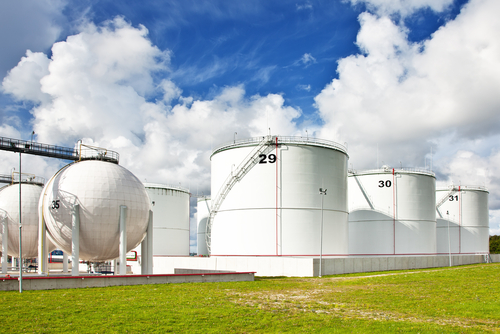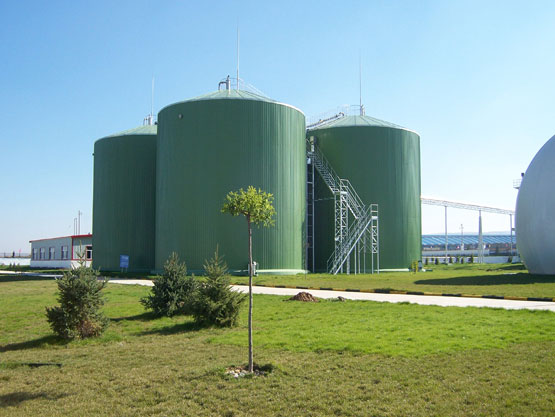A Comprehensive Guide to Industrial Storage Tanks
When it comes to managing the garage of various materials in commercial settings, the significance of choosing the proper storage answers cannot be overstated. Industrial garage tanks play a primary function in this procedure, serving as critical vessels for storing liquids, gases, and solids across numerous industries. In this comprehensive manual, we delve into the complicated global of commercial storage tanks, supplying insights, understanding, and practical advice to aid in navigating this vital issue of business operations.
When it comes to managing the garage of various materials in commercial settings, the significance of choosing the proper storage answers cannot be overstated. Industrial storage tanks play a primary function in this procedure, serving as critical vessels for storing liquids, gases, and solids across numerous industries.
In this comprehensive manual, we delve into the complicated global of commercial storage tanks, supplying insights, understanding, and practical advice to aid in navigating this vital issue of business operations.

Design Considerations for Industrial Storage Tanks
Designing commercial garage tanks includes cautious consideration of various factors to ensure ideal performance, protection, and longevity. Here's an outline of layout concerns for commercial storage tanks:
I. Type of Material to Be Stored:
A. Compatibility: Ensure the tank fabric is compatible with the stored substance to save you corrosion or infection.
B. Chemical Resistance: Select materials that face up to corrosion, chemical reactions, and degradation.
II. Tank Configuration:
A. Orientation: Determine whether or not a vertical or horizontal tank configuration is appropriate primarily based on space availability and application necessities.
B. Shape: Choose between cylindrical, rectangular, or different shapes relying on area constraints and cloth traits.
III. Tank Capacity and Sizing:
A. Determine the desired storage ability based totally on expected call for, production volumes, and stock control wishes.
B. Consider elements together with growth plans, seasonal versions in call for, and future boom when sizing the tank.
IV. Operating Conditions:
A. Temperature: Ensure the tank material and design can resist the temperature range of the stored substance.
B. Pressure: Determine the maximum operating stress and pick tank components hence.
C. Environmental Conditions: Consider factors which include wind masses, seismic hobby, and publicity to daylight while designing the tank.
V. Safety Features:
A. Leak Detection Systems: Install sensors or alarms to detect leaks and prevent spills or environmental contamination.
B. Overfill Protection: Implement measures to save you overfilling and make sure secure operation.
C. Ventilation: Provide adequate air flow to save you the buildup of risky vapors or gases.
VI. Accessories and Components:
A. Valves and Fittings: Select suitable valves, fittings, and connections to facilitate filling, draining, and monitoring operations.
B. Gauges and Instruments: Install degree signs, stress gauges, and temperature sensors for accurate monitoring and control.
C. Agitators or Mixers: Consider the need for blending or agitation to keep homogeneity or save you settling of contents.
VII. Regulatory Compliance:
A. Ensure compliance with nearby, state, and federal guidelines governing the layout, installation, and operation of industrial storage tanks.
B. Obtain essential lets in and approvals from regulatory authorities before building or installing the tank.
VIII. Maintenance Requirements:
A. Design the tank with accessibility in mind to facilitate inspection, maintenance, and repair sports.
B. Develop a maintenance time table and put into effect procedures for cleansing, corrosion prevention, and periodic inspections.
IX. Environmental Considerations:
A. Implement measures to reduce environmental impact, which includes secondary containment systems or spill containment measures.
B. Consider the potential for groundwater contamination and implement preventive measures as necessary.
Factors to Consider When Selecting Industrial Storage Tanks
When deciding on business storage tanks, numerous vital factors should be taken into consideration to ensure they meet the unique requirements of your software. Here are the key elements to keep in mind:
Material Compatibility: Ensure the tank cloth is like minded with the saved substance to save you corrosion, infection, or unfavourable reactions.
Tank Capacity and Sizing: Determine the desired garage capacity primarily based on factors consisting of anticipated demand, manufacturing volumes, and inventory control wishes. Consider future boom and expansion plans when sizing the tank.
Environmental Conditions: Evaluate the environmental elements surrounding the tank's set up website online, which includes temperature versions, wind loads, seismic hobby, and exposure to daylight.
Regulatory Compliance: Ensure the tank design and installation follow local, state, and federal guidelines governing industrial garage tanks. Obtain vital permits and approvals from regulatory government.
Operating Conditions: Consider the running situations, including temperature, strain, and agitation necessities. Select tank additives and materials capable of withstanding the particular working conditions.
Safety Features: Incorporate protection capabilities which include leak detection structures, overfill protection, ventilation, and emergency shutdown systems to prevent injuries and make sure secure operation.
Accessibility and Maintenance: Design the tank with accessibility in mind to facilitate inspection, maintenance, and restore sports. Develop a preservation agenda and implement strategies for cleansing, corrosion prevention, and periodic inspections.
Cost and Budget Constraints: Evaluate the price-effectiveness of various tank alternatives, thinking about factors including preliminary purchase price, installation expenses, upkeep prices, and lifecycle prices.
Durability and Longevity: Choose tank substances and coatings that offer durability and longevity, minimizing the risk of untimely failure and decreasing the want for frequent replacements.
Supplier Reputation and Support: Research the popularity and track file of tank producers or suppliers. Select a reputable dealer that offers exceptional products, reliable support offerings, and timely delivery.

Conclusion:
In conclusion, deciding on the right industrial garage tanks calls for careful attention of various factors to ensure they meet the unique desires of your utility. Whether storing chemical compounds, petroleum merchandise, water, or different substances, the selection of tanks plays a crucial function in preserving operational efficiency, safety, and regulatory compliance. In the context of water treatment facilities, wherein stringent standards for water excellent and safety are paramount, selecting the proper Water Treatment Tanks is specially vital.
What's Your Reaction?


















